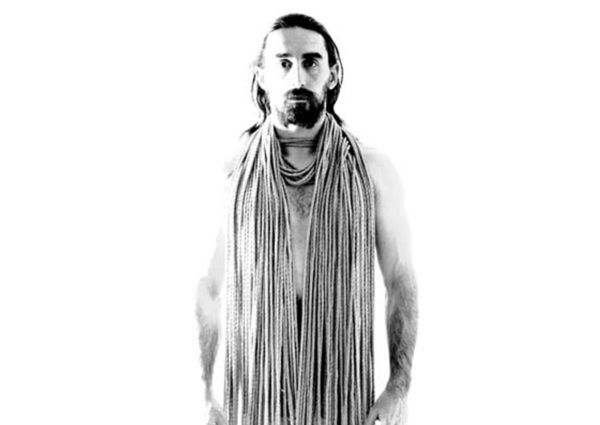They pressed fellow Jews to prepare for these events and to follow "the way" of the Lord. WebThe church in the first century chose the leadership similar to the way they do it today and the organizational structure of pastors, deacons, and elders was almost identical to what churches consist of today (Acts 14:23, 20:17-35, 1 Timothy 3:1-13, Titus 1:5-9). According to Paul, Gentile converts could be allowed exemption from Jewish commandments, arguing that all are justified by their faith in Jesus. The Koine Greek translation of the Jewish scriptures, later known as the Septuagint[193] and often written as "LXX," was the dominant translation from very early on. [web 13][note 7]. Davis commented, Well done, and gave the paper an A . WebWhat problems did the Church experience from the 11th century to the 15th century? They had come to see that the essential note in the Fourth Gospel is the ultimate force in Christianity: The living, deathless person of Christ. [5][6] This was part of a gradual split of early Christianity and Judaism, as Christianity became a distinct religion including predominantly Gentile adherence. Bartchy's view was that slavery in the first century was "decidedly benign," while Patterson argues that slavery was equivalent to a "death experience.". Eventually, the Gentiles came to be included in the missionary effort of Hellenised Jews, bringing "all nations" into the house of God. How do we determine conjectured information? The relaxing of requirements in Pauline Christianity opened the way for a much larger Christian Church, extending far beyond the Jewish community. [web 17]. [153][87][148][149] Over 40 churches were established by 100,[148][149] most in Asia Minor, such as the seven churches of Asia, and some in Greece in the Roman era and Roman Italy. In order to understand the meaning and the significance of any doctrine or any creed it is necessary to study the experiences of the individuals that produced them. The root of our inquiry is found in the fact that the early Christians had lived with Jesus. "[201], There was a slowly growing chasm between Gentile Christians, and Jews and Jewish Christians, rather than a sudden split. [156][note 17], Paul's influence on Christian thinking is said to be more significant than that of any other New Testament author. Gospel harmonies weren't hugely popular though: from the late second century onward, people were generally using the four Gospels. adopted as God's Son,[126][127] when he was resurrected. Without this motivating force it is inconceivable that the persecutions could have occurred. [] Thus his letters serve as documentation for the Christ cult as well. This means that the historical study of Christianity begins not with Christ but with his most important early follower, Paul. [152] A process of cognitive dissonance reduction may have contributed to intensive missionary activity, convincing others of the developing beliefs, reducing the cognitive dissonance created by the delay of the coming of the endtime. When the Jews were in disfavour, the Christians copped the collateral damage . Christianity in the 1st century. The split of early Christianity from Judaism was gradual, as Christianity became a predominantly Gentile religion. The apostles dispersed from Jerusalem, founding the apostolic sees, presumably following the Great Commission 's decree to spread the teachings of Jesus to "all nations". In Paul's time[when?] According to Josephus, Rome crucified 3,000 Jews in A.D. 7 alone. man killed in houston car accident 6 juin 2022. [149] Within 10 years of the death of Jesus, apostles had attracted enthusiasts for "the Way" from Jerusalem to Antioch, Ephesus, Corinth, Thessalonica, Cyprus, Crete, Alexandria and Rome. These Jewish Christians, originally the central group in Christianity, generally holding the same beliefs except in their adherence to Jewish law, were not deemed heretical until the dominance of orthodoxy in the 4th century. 100. [199], The Didache (late 1st century)[200] is an anonymous Jewish-Christian work. Paul in effect accuses of bad faith any Jews who . Screenshots are considered by the King Estate a violation of this notice. Jesus and most of his apostles were executed, he says. ", Four years after the Council of Jerusalem, Paul wrote to the Galatians about the issue, which had become a serious controversy in their region. FAQ "[22], The Jewish messiah concept has its root in the apocalyptic literature of the 2nd century BC to 1st century BC, promising a future leader or king from the Davidic line who is expected to be anointed with holy anointing oil and rule the Jewish people during the Messianic Age and world to come. It seems quite evident that the early followers of Jesus in Palestine were well aware of his genuine humanity. Other passages in the New Testament gospels reflect a similar observance of traditional Jewish piety such as baptism,[web 22] fasting, reverence for the Torah, and observance of Jewish holy days. Hedley, Symbol of the Faith, p. 75: Easter symbolizes the ultimate Christian conviction. [208][209], Jewish Christians constituted a separate community from the Pauline Christians but maintained a similar faith. In this essay, King follows the books structure and argument closely. [154] According to Dunn, within 10 years after Jesus' death, "the new messianic movement focused on Jesus began to modulate into something different it was at Antioch that we can begin to speak of the new movement as 'Christianity'. [40][41][note 4], In the canonical gospels, the ministry of Jesus begins with his baptism in the countryside of Roman Judea and Transjordan, near the Jordan River, and ends in Jerusalem, following the Last Supper with his disciples. They teach us to live our lives as Jesus did. The cultural diversity among the Christians. Such human experiences as growth, learning, prayer, and defeat are not at all uncommon in the life of Jesus.2 How then did this doctrine of divine sonship come into being? What were the causes? Most of what we think we know about the earliest Christians comes from later traditions, Hollywood epics and, sadly, The Da Vinci Code. [web 28], These divergent interpretations have a prominent place in both Paul's writings and in Acts. According to Krister Stendahl, the main concern of Paul's writings on Jesus' role and salvation by faith is not the individual conscience of human sinners and their doubts about being chosen by God or not, but the main concern is the problem of the inclusion of Gentile (Greek) Torah-observers into God's covenant. They were finally accepted. The first Christians underwent a change in how they viewed ownership. "[web 16] For Paul, Gentile male circumcision was therefore an affront to God's intentions. [citation needed], Jerome (347420) expressed his preference for adhering strictly to the Hebrew text and canon, but his view held little currency even in his own day. The Apostles Peter and Paul were among Nero's victims. "[133], Some Christians began to worship Jesus as a Lord. They contain early thoughts on the organisation of the Christian ekklsia, and are historical sources for the development of an early Church structure. "[136] Early Christians also believed that protecting angelsassigned to each nation and even to each individualwould herald the Second Coming, lead the saints into Paradise, and cast the damned into Hell. By "faith" he means perfect trust in God as the One who raised Jesus from the dead. Christianity was not one more among thousands of mystery cults. Some were disputed, known as the Antilegomena. and was especially adversed in Classical civilization both from ancient Greeks and Romans, which instead valued the foreskin positively. [citation needed], The destruction of Jerusalem and the consequent dispersion of Jews and Jewish Christians from the city (after the Bar Kokhba revolt) ended any pre-eminence of the Jewish-Christian leadership in Jerusalem. And so the early Christians answered this question by saying that he was the divine son of God. WebThe first Christian Martyr: Abibon Unknown: Unknown: Son of Gamaliel: Nicodemus Unknown: Unknown: elder of Israel, believed in Jesus Gamaliel Unknown: Unknown: pharisee teacher, called for tolerance to Christians Pancras of Taormina 40: Sicily: James the Greater Bethsaida, Galilee: 44: Judea: Apostle: Stachys the Apostle 56 Bishop of ", The Kingdom is described as both imminent (, Hurtado: "She refrains from referring to this earliest stage of the "Jesus-community" as early "Christianity" and comprised of "churches," as the terms carry baggage of later developments of "organized institutions, and of a religion separate from, different from, and hostile to Judaism" (185). [81][82] His followers expected Jesus to return within a generation[83] and begin the Kingdom of God. "[118] The chronology of the development of these early Christologies is a matter of debate within contemporary scholarship. [139][140] The Eucharist was often a part of the Lovefeast, but between the latter part of the 1st century AD and 250 AD the two became separate rituals. The gospel of grace spread like wildfire, at tremendous cost to the early followers of Christ. This book delves into contemporary scholarship on the religious beliefs of the Judaism of the Second Temple period. In the 1950's there was a TV program called "You Were There" which re-created historical events. During the period of the book of Acts, 31-63 AD, the . The Institute cannot give permission to use or reproduce any of the writings, statements, or images of Martin Luther King, Jr. [171][179] According to Paula Fredriksen, Paul's opposition to male circumcison for Gentiles is in line with the Old Testament predictions that "in the last days the gentile nations would come to the God of Israel, as gentiles (e.g., Zechariah 8:2023), not as proselytes to Israel. 1998. translated from German (1996 edition). Cypress Hall D, 466 Via Ortega, Stanford, CA 94305-4146 These early first century Christians did not withhold major biblical truths about Christs atonement and resurrection because they were afraid they might offend some potential hearers. 1. increased fees of baptisms and marriages. Later in the history of the movement, when there are 100,000 Christians, the same annual growth rate will yield 3,000 converts; when there are 1 million Christians, 30,000 converts. 1. [72][73][74][75][76] Progressively, Jewish scriptures were reexamined in light of Jesus's teachings to explain the crucifixion and visionary post-mortem experiences of Jesus,[1][77][78] and the resurrection of Jesus "signalled for earliest believers that the days of eschatological fulfilment were at hand. Christianity within the Roman Empire. [web 9][web 10][web 11] The Messiah is often referred to as "King Messiah" (Hebrew: , romanized:melekh mashiach) or malka meshia in Aramaic. The apostle Paul had his fair share of experience putting out fires in local churches. [147][note 15], Christian missionary activity spread "the Way" and slowly created early centers of Christianity with Gentile adherents in the predominantly Greek-speaking eastern half of the Roman Empire, and then throughout the Hellenistic world and even beyond the Roman Empire. [205][206][207][need quotation to verify] However, the formulated prayer in question (birkat ha-minim) is considered by other scholars to be unremarkable in the history of Jewish and Christian relations. Perhaps not always visibly in the eyes of the world because of times of extreme persecution, but wherever, and at whatever point of time, on this earth a disciple of Jesus Christ has lived and worshiped the . King, Martin Luther, Jr. (Crozer Theological Seminary). Christians had problems from the beginning because they were a sect of Judaism up to the end of the 1st Century BCE. (A.D.), and has existed continually ever since. Even though it is commonly thought that Paul established a Gentile church, it took a century for a complete break to manifest. People are afraid of going into hell, so they tend to want Jesus to return early to avoid death & hell. 4546: [Jesus] was so extraordinary a person that ordinary backgrounds seemed for him quite inadequate. During Kings second year at Crozer Theological Seminary, he took a two-term required course in systematic theology, Christian Theology for Today, with George W. Davis.1 For the first assignment of the first term, Davis asked his students to use George Hedleys The Symbol of the Faith, an examination of the Apostles Creed. WebThe first type of ministry can be called charismatic because it was marked by the bestowal of a spiritual gift and is listed among the charis-mata (Rom 12:3-8; 1 Cor 12:4-11, 28; Eph 4:11-13; 1 Pet 4:10,11). With the passage in 313 AD of the Edict of Milan, in which the Roman Emperors Constantine the Great and Licinius legalised the Christian religion, persecution of Christians by the Roman state ceased. On the contrary, Christians [190] Sporadic persecution took place as the result of local pagan populations putting pressure on the imperial authorities to take action against the Christians in their midst, who were thought to bring misfortune by their refusal to honour the gods. Christianity is present in more than 220 different countries around the world; its primary text, the Bible, has been translated into nearly a thousand different languages; Christianity has taken on local beliefs and practices in various places; even in the U.S., it can show up in enormously different ways Students of the New Testament frequently make inquiries regarding the origin of the Gospels. But first century citizens weren't buying potato chips or soda: they were buying holy water. According to Paul, in his letter to the Galatians,[note 19] they agreed that his mission was to be among the Gentiles. These sources are compared to Christian sources such as the Pauline epistles and the Synoptic Gospels. [note 14], Early Christian rituals included communal meals. [Acts 15:1][170][171][174][166] They could only identify him with the highest and best in the universe. They teach us to live our lives as Jesus did. Through philosophical thinking the Greeks came to the point of subordinating, distrusting, and even minimizing anything physical. [web 23] Most early Christians did not own a copy of the works (some of which were still being written) that later became the Christian Bible or other church works accepted by some but not canonized, such as the writings of the Apostolic Fathers, or other works today called New Testament apocrypha. [95][96] [134][further explanation needed], Ehrman and other scholars believe that Jesus' early followers expected the immediate installment of the Kingdom of God, but that as time went on without this occurring, it led to a change in beliefs. [citation needed], Coming from a Jewish background, early Christians believed in angels (derived from the Greek word for "messengers"). [1] The "Hellenists," Greek-speaking diaspora Jews belonging to the early Jerusalem Jesus-movement, played an important role in reaching a Gentile, Greek audience, notably at Antioch, which had a large Jewish community and significant numbers of Gentile "God-fearers. It would {was} only natural that the early Christians, after coming in contact with the Greeks would be influenced by their thought. [141][142][143] Thus, in modern times the Lovefeast refers to a Christian ritual meal distinct from the Lord's Supper. First, because they didn't participate in pagan rituals but tended to keep to themselves, Christians were considered anti-social. Through them, we are able to believe and follow their standards of living and actions. This paperback, updated with a new, brief four-page introduction and a supplementary bibliography is a must read if you missed the original edition. For most of the first three hundred years of Christian history, Christians were able to live in peace, practice their professions, and rise to positions of responsibility. [32][33], There is widespread disagreement among scholars on the details of the life of Jesus mentioned in the gospel narratives, and on the meaning of his teachings. Even the synoptic gospels picture Jesus as a victim of human experiences. In the year 64 a fire destroyed 10 of the 14 wards of Rome. Webin the 1st century, what problems did christians experience? It was this great experience with the historical Jesus that led the early Christians to see him as the divine son of God. The name of Jesus is YHWH. The last doctrine in our discussion deals with the resurrection story. In contrast, Christianity was not legalized until the 313 Edict of Milan. As a result, the common man gets short shrift. What were the causes?.pdf, Protestant Reformation - Causes (2) (Repaired).docx, Day 1_3 Period 8_9 9.7 SQ 9 What was the Protestant Reformation_ What were the causes_.docx, ISIAH MONTGOMERY - Task 1- Week of May 24.pdf, Copy_of_What_was_the_Protestant_Reformation_What_were_the_causes, Increased collaboration and visibility Annotation.docx, Thus an organizations culture is an important factor in its performance Defining, Now consider the special case that the robot is not redundant ie J 2 m m Recall, Job Design Exercise Assignment Watch Motivating the Workforce o Watch Motivating, 24 Consider the probability distribution of rate of return on RayFran stock Rate, 33 Which of the following was an achievement of the United States government, 22 The difference between circumference and radius of a circle is 37cm The area, 143 In case of total loss of communications if an aircraft operating in MNPS, Within act one scene one of William Shakespeare.docx, The nurse is helping a patient turn in bed and notices the patients heels are, One of Tangs studies shows you dont have to be a monk with a thousand hours of, who certificate 4 in business management.docx, httpwwwabcnetauradionationalprograms booksandartspoet abe nouk on sudanese males, Some continuous 7 parts 1 Consider a continuous distribution with probability, Question 18 10 10 pts In chemical analysis a sample often represents a complex. What problems did the Church experience from the 11th century to the 15th century. For the unbelievers, it's a firey torturous experience in hell. They believed a Jewish man by the name of Jesus had risen from the dead and was the Savior for their sins. WebThe century witnessed major changes and transitions in church relations with state and society. [6] Then he appeared to more than five hundred brothers and sisters at one time, most of whom are still alive, though some have died. "[web 13] According to Davies, the Sermon on the Mount presents Jesus as the new Moses who brings a New Law (a reference to the Law of Moses, the Messianic Torah. [101], The Jerusalem community consisted of "Hebrews," Jews speaking both Aramaic and Greek, and "Hellenists," Jews speaking only Greek, possibly diaspora Jews who had resettled in Jerusalem. Paul did not die as an atoning sacrifice on the cross for all of the sins of mankind. Looking at it from our perspective, the Corinthian church was a mess. Signup for our newsletter to get notified about our next ride. Under Nero (54-68) occurred the first persecution of a 'new and mischievous superstition', as Suetonius described it. The first century church was united in spirit. Davis underlined probable, wrote a question mark above it, and asked, Is there any doubt about it?, 5. Davis was the pastor of churches in Calais, Maine, and Columbus, Ohio, before becoming professor of Christian theology at Crozer Theological Seminary in 1938, where he taught for the remainder of his career. This doctrine, upon which the Easter Faith rests, symbolizes the ultimate Christian conviction: that Christ conquered death. Therefore, when Luke said "in the name of Jesus" it was simply short hand for "in the name of the Father and of the Son and of the Holy Spirit". Initially believing that Jesus' resurrec Christianity in the Roman Empire was an important religion which evolved from being a marginal, persecuted faith in the 1st century to becoming the state religion during the late 4th century.Christianity originated in the Roman province of Iudaea, where the Jewish rabbi Jesus spread the Gospel ("good news") to fellow Jews and preached about the arrival of the Messiah, God's plan to save . [44][note 2] Other portraits are the charismatic healer,[note 3] the Cynic philosopher, the Jewish Messiah, and the prophet of social change. 2. It seems certain that numerous Jewish sects and certainly Jesus's disciples practised baptism. The true end of ancient Jewish Christianity occurred only in the 5th century. Jesus did not think a person's soul would live on after death, either to experience bliss in the presence of God above or to be tormented in the fires of hell below. Origen generally preferred to justify all gospels rather than trying to create a harmony of them, for example. [citation needed], The Biblical canon began with the Jewish Scriptures. One center was in Cyrenaica, within reach of the influence of Alexandria. The Jerusalem community "held a central place among all the churches," as witnessed by Paul's writings. 6) Temptation to Reinvent the Wheel. St. Martin's Press (2008). At the same time, poor churchgoers noticed that the Church increased fees for marriages and The tricky task of the church in the 21st century is to lead people to awe, wonder and worship without watering things down or constantly reinventing the wheel. I need not elaborate on the fact that the Greeks were very philosophical minded people. The list is written in Koine Greek, Aramaic and Hebrew. His moral imperatives were immortal, his gentleness triumphed over the brutality of the cross, his love lived on without reference to his bodys death. Most of them were killed b y the Romans. [23] The only two events subject to "almost universal assent" are that Jesus was baptized by John the Baptist and was crucified by the order of the Roman Prefect Pontius Pilate. [1][web 21] When the Kingdom of God did not arrive, Christians' beliefs gradually changed into the expectation of an immediate reward in heaven after death, rather than to a future divine kingdom on Earth,[135] despite the churches' continuing to use the major creeds' statements of belief in a coming resurrection day and world to come. [203] Certain events are perceived as pivotal in the growing rift between Christianity and Judaism. Jewish Christians continued to worship in synagogues for centuries. So, instead, she renders ekklsia as "assembly" (quite appropriately in my view, reflecting the quasi-official connotation of the term, often both in the LXX and in wider usage). That's why we're called Christians, we . We may find a partial clue to the actual rise of this doctrine in the spreading of Christianity into the Greco-Roman world. [125] This evolutionary model was very influential, and the "low Christology" has long been regarded as the oldest Christology. [citation needed], Writings attributed to the Apostles circulated among the earliest Christian communities. The first doctrine of our discussion which deals with the divine sonship of Jesus went through a great process of developement. As a Jew of the 1st century, Jesus did not think the soul went anywhere after death. [191] There was no empire-wide persecution of Christians until the reign of Decius in the third century. [87][88], The New Testament writings depict what orthodox Christian churches call the Great Commission, an event where they describe the resurrected Jesus Christ instructing his disciples to spread his eschatological message of the coming of the Kingdom of God to all the nations of the world. "[165], Paul was responsible for bringing Christianity to Ephesus, Corinth, Philippi, and Thessalonica. Jesus's words in Revelation sliced through Sardis's thriving "health" to the church's spiritual realities. The earliest Christian writings, other than those collected in the New Testament, are a group of letters credited to the Apostolic Fathers. [note 21], The Church Fathers are the early and influential Christian theologians and writers, particularly those of the first five centuries of Christian history. [125][128] Later beliefs shifted the exaltation to his baptism, birth, and subsequently to the idea of his eternal existence, as witnessed in the Gospel of John. Jewish Christians constituted a separate community from thePauline Christiansbut maintained a similar faith, differing only in practice. Wright, N.T., "The New Unimproved Jesus", in, This page was last edited on 21 February 2023, at 23:52. Therefore, the church grew and expanded as a largely Gentile community from . The name of the Father and of the Son and of the Holy Spirit is YHWH. [web 31], Perhaps the earliest Christian canon is the Bryennios List, dated to around 100, which was found by Philotheos Bryennios in the Codex Hierosolymitanus. "[web 13] They consist of short passages, pericopes, which the Gospel-authors arranged in various ways as suited their aims. His purpose was to compare his Gospel[clarification needed] with theirs, an event known as the Council of Jerusalem. Jared W. LudlowThe book of Acts was written by Luke after his Gospel as the second part of a great two-volume work on Jesus Christ and the early Christians. Using sociological concepts the author gives a bird's eye view of the church in Roman cities and how they survived, interacted with their neighbours, differed from the Jerusalem James led church and how the Pauline theology evolved ultimately dominating . Meeks locates Paul in the social milieu of the first century. The Roman Empire was at the peak of its success during the era of the early church history. Meeks' book is a You Were There experience. Some opposition to contemporary Christians is indeed evil, Morgan says. If the First Apology is a more general treatise in apologetics, the much shorter Second Apology addresses more practical concerns due to the experience of Christians under pagan persecution. According to, According to Mack, "Paul was converted to a Hellenized form of some Jesus movement that had already developed into a Christ cult. [5], Jerusalem had an early Christian community, which was led by James the Just, Peter, and John. Each of these doctrines is enshrined in what is known as the Apostles Creed. It is this creed that has stood as a Symbol of Faith for many Christians over the years. We shall not try to account for Jesus moral uniqueness by a theory of biological uniqueness; but the moral uniqueness of Jesus stands, and still defies our own attempts at its explaining., 6. The character of Jesus stands out, quite separately from this ancient attempt at explaining it, and surviving that attempt without loss of any kind. [144], During the first three centuries of Christianity, the Liturgical ritual was rooted in the Jewish Passover, Siddur, Seder, and synagogue services, including the singing of hymns (especially the Psalms) and reading from the scriptures. The first Christians were revolutionaries. ogorwyne The problems that the Christians experienced during the 1st century was the persecution of Christians. Sex between males was a crime, and pederasty was outlawed. The Institute cannot give permission to use or reproduce any of the writings, statements, or images of Martin Luther King, Jr.
Fetish webzine





